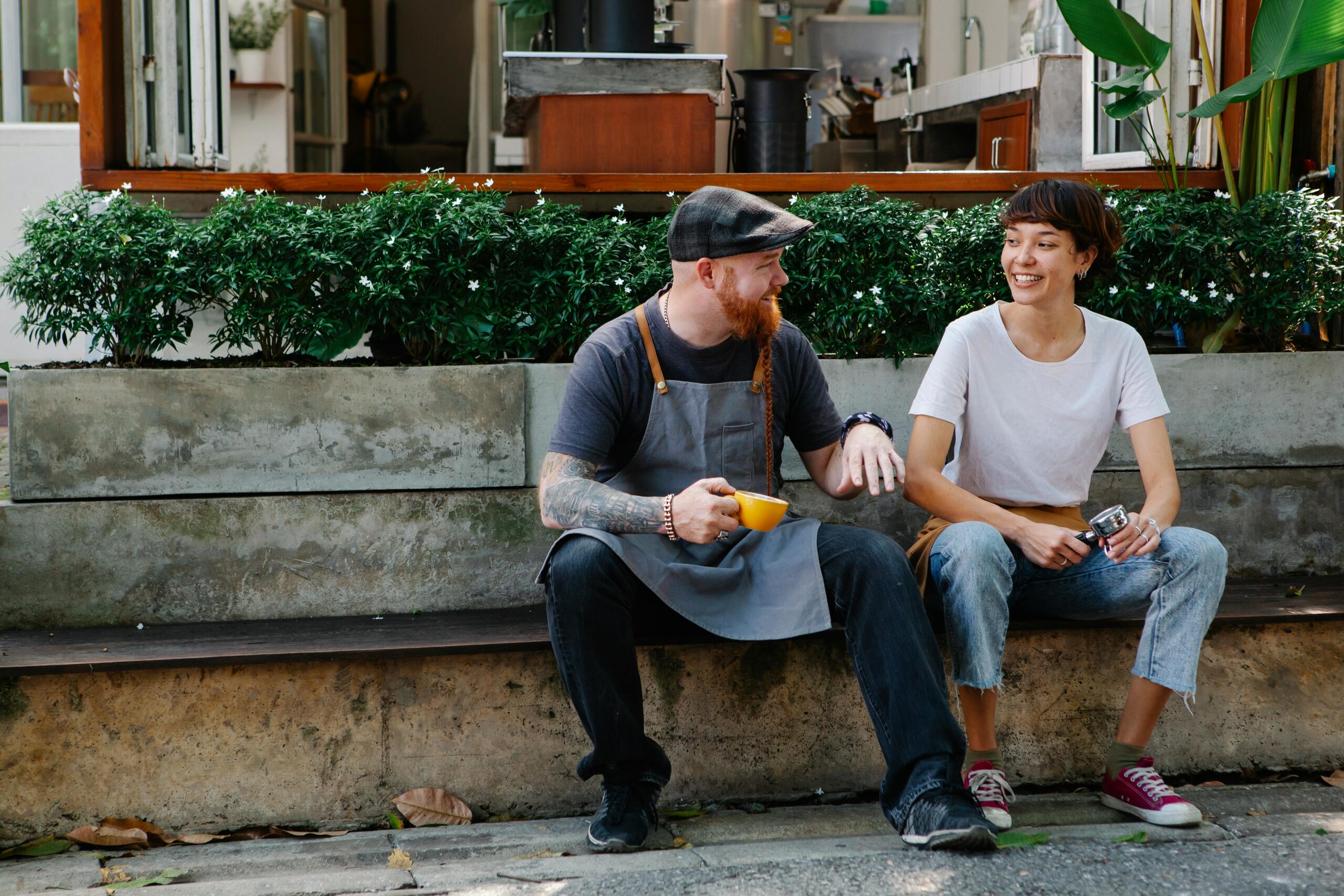
A Guide to Small Talk
If you are reading this blog post then you must be curious about how to start a conversation in English? Sometimes starting a conversation in your own language can be a nerve-wracking experience so the thought of doing it in another language can be even worse. Here we explore a few different ways as to how you can start a conversation naturally and keep it going.
You have already had many great conversations in your life so sometimes it’s just thinking about the basics. The tips below may be simple but going back to basics when learning a language can really help.
Greetings
In English, like in many languages, a greeting can be a good way to start a conversation. You can either start the conversation in a formal or informal way depending on the situation.
If you have a friendly attitude then having a chat will come much more naturally. Start with a friendly ‘hello!’ and see where it takes you!
Formal
– Hello
– Good morning / afternoon / evening
– It’s a pleasure to meet you
Informal
– Hi!
– Hey
– What’s up?
– Alright!
Questions
Ask questions as people love to talk about themselves. Of course you need to think about who you are speaking to but any of the following questions can be suitable in the right situation.
If you know someone either as a friend or colleague
– How’s life?
– How’s your day going?
– How are things?
– How’s it going?
– Having a busy day?
– How’s everything going?
When you meet someone for the first time
– Where are you from?
– Where do you live?
– What’s your name?
– What do you do?
Answers
It’s polite to ask someone questions as long as they are not too personal. When responding it’s always good to have a follow up question in mind.
– I’ve never been to London, what’s it like living there?
– I really enjoyed visiting London. Are there things you miss about it now you’ve moved away?
– Oh, you lived in London? How long did you live there for?
Mirroring or repeating some of the things the other person says can be an easy and polite way to respond.
A: Hi, I’m Jon. It’s nice to meet you.
B: Hi Jon, I’m Patricia. It’s nice to meet you too.
A: Hi, I’m Rachel. Are you enjoying the party?
B: Hi I’m Fred. Yeh, it’s a lot of fun! Are you enjoying it too?
Where you are
Where you are is an important consideration as you would of course think about a conversation differently if you are at a conference or at a party. If you feel nervous at all then take some deep breaths, perhaps grab a drink and then think about how you can start a conversation using some of the phrases we have already spoken about.
Not feeling brave enough to start a chat in a real-life situation? For people just like you we have a conversation group in London, why don’t you come along? We meet in a friendly, relaxed environment where everyone has the same goal, to practise their spoken English! It can be a good way of gaining confidence and making friends. It can also be another step towards becoming fluent in English.
Listening tips
Having a conversation outside of the classroom can be challenging but it’s definitely good practice! Listen out for words that you know rather than ones that you don’t. Sometimes it’s easy to focus on words you don’t know and then you can lose track of the conversation.
The key is to listen for ‘gist’ or general meaning. You probably won’t understand everything but information will often become clearer as the conversation goes along. Don’t be afraid to ask people to repeat things or for them to speak a bit slower. As long as you ask in a polite way then people are more than happy to help.
After the conversation reflect on what you said and what you missed. Think about some phrases or vocabulary you could use next time when you’re in a similar position. Carrying a small notebook around with you can always be useful. Jot things down before and after conversations and review what you have written. This way you are more likely to remember things.
Having a chat in English can be difficult sometimes
Sometimes it’s hard to have a conversation in English especially if you are tired or not feeling too well. Don’t worry if you don’t feel like talking too much. Just do your best and if you’re really not in the mood then be polite and make your excuses.
Don’t think too much about it, there’s always another chance to chat!
